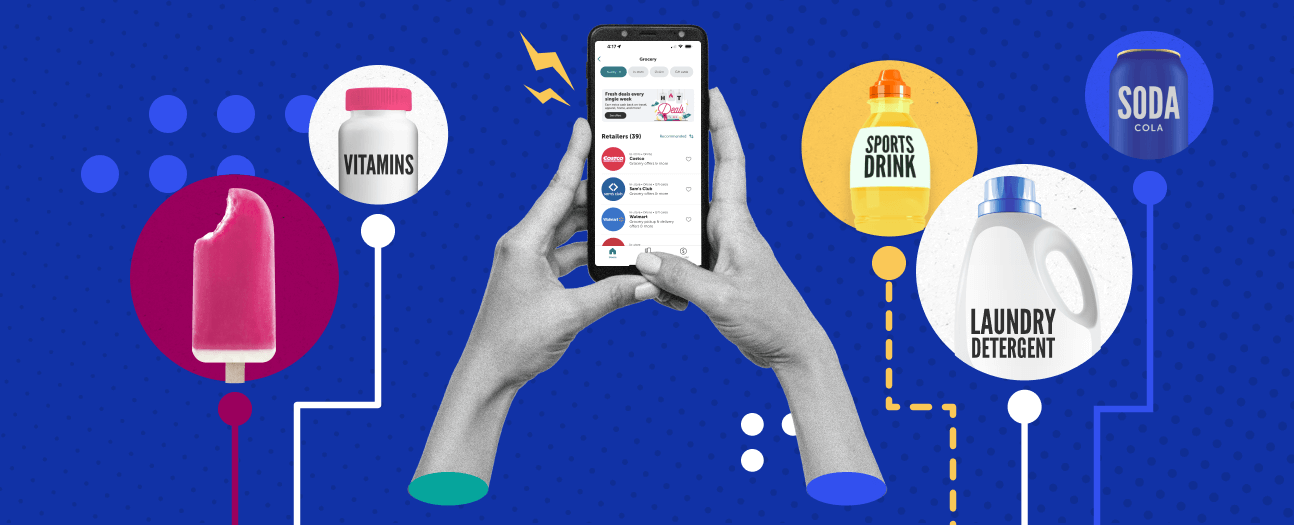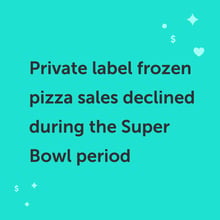
March 31, 2022
According to the U.S. Bureau of Labor Statistics, grocery food prices increased 7.4% year-over-year in January 2022 – the highest annual increase since 1982. The supply chain disruptions and labor shortages caused by the COVID-19 pandemic have raised prices for many of the biggest CPG manufacturers, who are offloading the costs onto shoppers. Kraft Heinz Co. reported higher than expected profits for 2021, but increased the cost of approximately two-thirds of its U.S. portfolio by 4-5%, promising further increases should inflation worsen. PepsiCo raised prices by 7% and also suggested more increases could follow, predicting inflationary pressures could continue into 2023.
Yet companies have also acknowledged that customers will eventually reach a breaking point. Kellogg CEO Steven Cahillane noted during his February earnings call that CPGs have avoided losing sales due to higher prices so far because shoppers are more likely to cut back on dining out than cooking at home. Yet shoppers have another alternative that brands shouldn’t discount - turning to more affordable private label products. In a recent survey, 60% of Ibotta Savers said that higher prices have led to them buying more store brand products.
Private label purchasing was already on the rise before the pandemic, driven by innovation at major retailers that pushed store brands beyond budget buys. The Simple Truth natural and organic line Kroger introduced in 2012 hit $3 billion in value in 2020, while sales of its premium Private Selection brand grew 20%. Shoppers spent 19.5% of their grocery dollars on store brands in 2020, with the growth of private label sales keeping pace with national brands as the pandemic forced shoppers to spend more on groceries when restaurants shuttered.
Now that shoppers are looking to cut costs, the lower average prices of private label brands may cause them to reconsider their loyalties to national brands. Private label prices have risen more slowly because they require negotiation between the retailers and the manufacturers that produce their products.
Know Your Category
CPGs should take note of how vulnerable they are to private label switching. Proprietary research conducted by Ibotta using verified purchase data over key buying occasions in 2021 shows that private label purchases vary dramatically across categories.
Private labels have been gaining ground in the condiments market. While Heinz ketchup dominates the category, accounting for 54.7% of purchases made by Ibotta users in 2021, 31.1% of those same shoppers bought private label ketchup. That’s a 2.0% increase over 2020, with both Heinz and Conagra’s Hunt’s experiencing small decreases in market share. Similarly Unilever’s Hellmann’s is the leading mayonnaise, with 31.7% of share, but private label mayo purchases also rose 1.6% in 2021. It now accounts for 11.3% of purchases, approaching the 13% share of Kraft Heinz’s Miracle Whip, which experienced a 1.2% drop in share during the same period.
Campbell Soup Co.’s Swanson accounted for 30.1% of stock and broth purchases Ibotta users made throughout 2021, dominating category rivals such as Del Monte’s College Inn, which had 6.2% of share, and Unilever’s Knorr’s 3.6%. But it was still beat out by private labels, which held 40.8% of category share. A product primarily used for cooking provides an easy way to cut costs since the difference tends to be harder to taste when stirred into risotto or chicken pot pie. In contrast, private label brands only account for 10% of packaged soup sales, with Campbell’s holding 39.3% of the category.
Private label pie filling showed similar dominance, holding 45.8% of share throughout much of the year, with Conagra Brands’ Duncan Hines and Knouse Foods’ Lucky Leaf both earning 18.8% of purchases. However, those numbers dramatically shifted from Nov. 11-25 as shoppers geared up for Thanksgiving and sales of Nestle’s Libby’s Pumpkin rose 13.2%. Almost all of those sales came out of the private label share, demonstrating that shoppers who didn’t have a strong preference on the product throughout the year wanted the guaranteed quality for pumpkin pie they were serving to friends and family at their Thanksgiving feast. A similar shift during the same period happened with other baking needs, with sales of General Mills’ Pillsbury refrigerated dough jumping 15.2% and Kellogg’s Keebler increasing 5.3%. However, in this case the losses were more distributed, with only 4.4% coming from private labels.
A special occasion didn’t always increase sales for national brands. Category share changed little in the lead up to the 2021 Super Bowl, remaining flat at 13.4% for private label dips and spreads while PepsiCo’s Tostitos enjoyed a slight increase that was canceled out by a decline in sales of sister brands Fritos. There was also only minor movement in the purchase of chips and bagged popcorn, with General Mills’ Chex Mix dominating the category while PepsiCo’s Cheetos earned just barely more share than private label.
 What can move the needle is a cash-back offer. Nestle’s DiGiorno participated in Ibotta’s 2021 Big Game event and enjoyed a 7.9% increase in sales. Private label frozen pizza sales declined during the period along with purchases of General Mills’ Totino’s. Cases like this are likely to increase. 68% of Ibotta users say that inflation has made them rely more heavily on savings app and 80% say that they are trying to make more purchases when they can take advantage of a sale or promotion.
What can move the needle is a cash-back offer. Nestle’s DiGiorno participated in Ibotta’s 2021 Big Game event and enjoyed a 7.9% increase in sales. Private label frozen pizza sales declined during the period along with purchases of General Mills’ Totino’s. Cases like this are likely to increase. 68% of Ibotta users say that inflation has made them rely more heavily on savings app and 80% say that they are trying to make more purchases when they can take advantage of a sale or promotion.
While manufacturers may need to increase the price of their product to keep up with inflation, they should seriously consider strategies to avoid alienating consumers who are also looking to save money. Sponsoring Any Brand offers is a great way to reach category shoppers, helping to persuade them to place your product in their cart instead of a private label or rival national brand. You’ll only pay for the shoppers that view your ad. Ibotta’s cash-back offers also help brands stand out during seasonal occasions when behaviors may shift. Check out our 2022 calendar and inquire about upcoming events.
![]()
Achieve your brand goals
Which metrics are most important for your brand? Get in touch to explore possibilities with the Ibotta Performance Network.
